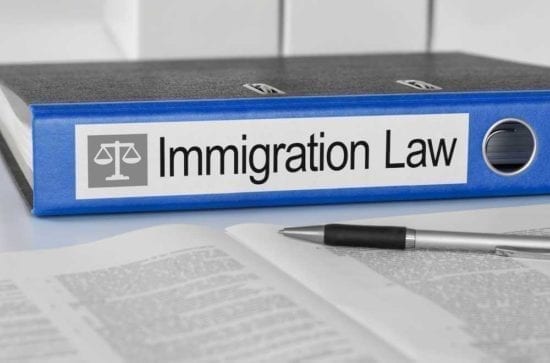Police in the USA
In the United States, the role of the police is to maintain public safety and enforce the law. They are supposed to protect people, prevent crime, and uphold individual rights. Many officers do their jobs with good intentions, following the law and treating people fairly. However, this is not always the case. Some police officers may abuse their power or treat people unfairly.
(https://youtu.be/5xv4ylUdHBg?si=YjlVPzbHgTDCBwHj)
There is a history of certain groups, including people of color and immigrants, being mistreated by the police in the USA. It is important to understand your rights when dealing with law enforcement.
Things to always know if you are stopped by police
No matter where the police stop you, if it is in public or while you are driving, these are important things to keep in mind:
- Stay calm: Do not run or argue. Try to be polite and respectful.
- Keep your hands visible: If you are driving keep them on your steering wheel.
- You have the right to remain silent: You do not have to answer questions about where you are going, where you’ve been, or your immigration status. If you choose not to answer, you can say, “I am using my right to remain silent.”
- You can refuse a search: If the police ask to search your belongings or your car, you can say, “I do not consent to a search.” However, the officer might still search if they have a warrant or probable cause (for example, if they see something illegal in plain view).
- Ask if you are free to leave: If you are not being detained, you can ask, “Am I free to leave?” If they say yes, calmly walk or drive away.
- Police can pat you down: If the police suspect you have a weapon, they can pat down your outer clothing to check for safety.
- Record details: If safe, write down the names, badge numbers, and contact information of the officers involved. You can also record the encounter if possible.
- Follow instructions: Do not resist search or arrest, even if you believe it is wrong.
- Do not move or make sudden movements: Do not touch the officer or get close to them.
- Do not lie: Never provide false information or documents. Stay silent if asked about your immigration status.
Always carry your ID with you and know the phone numbers of family members or a lawyer you would contact just in case of an emergency.
If you are stopped in a car
If you are pulled over while driving:
- Show your documents: You must show your driver’s license, registration, and proof of insurance when asked. Let the officer know where these items are before reaching for them.
- Answering questions: For simple traffic violations, you may feel comfortable answering basic questions, but you are not required to. You can still say, “I am using my right to remain silent” if you are unsure.
- Following instructions: If you are asked to step out of the car, you are legally required to do so. Otherwise, stay in the vehicle with your seatbelt fastened.
- Police can ask passengers for ID: In some states, passengers are not required to show ID unless the officer suspects a crime. It’s usually best to comply politely if asked.
- Passengers can ask to leave: Passengers can ask, ‘Am I free to leave?’ If the officer says yes, calmly exit the vehicle.
If police come to your home
- Do not open the door unless they have a warrant: If police or ICE agents come to your home, do not open the door unless they show you a warrant signed by a judge. You can ask them to show the warrant through a window or slide it under the door.
- You do not have to let them in: You can say, “I do not consent to a search.” They need a valid warrant, or evidence of a crime happening, to enter.
- Stay silent: Do not answer questions without speaking to a lawyer. You can say, “I wish to remain silent and speak to a lawyer.”

Learn what to do if ICE comes to your home, job, or stops you in public. Understand your rights and how to make a safety plan.
If police stop you at school or work
If police stop you at school or work, stay calm, follow instructions, and do not resist. Here is what to remember:
- At school: You can ask for your parents or guardian before answering any questions. If the police want to search your belongings, ask for a warrant, but know that lockers can be searched if they belong to the school. Report any inappropriate behavior to the school administration.
- At work: If the police do not have a warrant, check with your employer to see if they give the police permission to enter.
Being arrested or detained
- You have the right to remain silent: You do not have to answer any questions. Simply say, “I want to speak to a lawyer.”
- Ask for a lawyer: You have the right to talk to a lawyer. You should not answer any questions without speaking to a lawyer first. Do not sign any documents or make any decisions before speaking to a lawyer. If you cannot afford an attorney, one will be provided to you in criminal cases.
- You have the right to a phone call: Ask to call a lawyer, family member, or trusted friend. The police can listen to any calls except the one with your lawyer.
- You have the right to medical care. If you need medical attention, you have the right to ask for it while detained.
- You have the right to a fair hearing: You cannot be detained indefinitely and have the right to present your case in court.
- Do not resist arrest: Even if you believe the arrest is wrong, follow the officer’s instructions and avoid resisting.
It is always ok to say you do not understand what is being shared with you. If you do not understand English, you have the right to an interpreter. Learn more.
Reporting violations or discrimination
If a police officer mistreats you or discriminates against you (treats you unfairly because of your race, religion, gender, or nationality), you can file a complaint. Here is what you should do:
- Write down the details: After the incident, write down the officer’s name, badge number, and any other information you can. Record details like what happened, when, and where. Take photos of any injuries if applicable.
- File a complaint: You can file a complaint with the police department’s internal affairs office or a civilian complaint board. In most cases, you can file anonymously.
- Report mistreatment of others: If you witness someone being mistreated by police, you can safely record the incident and offer the footage to them for their own complaint.
- Seek support from nonprofits: Some organizations provide legal help to those who have been mistreated by the police.
Ibindi kuri USAHello
Uri gushakisha amakuru yihariye?
Amakuru ari kuri iyi paji aturuka kuri ACLU, NILC, CLINIC, n'ahandi hizewe. Dufite intego yo gutanga amakuru yoroshye gusobanukirwa kandi avugururwa mu buryo buhoraho. Aya makuru si inama mu by’amategeko.





